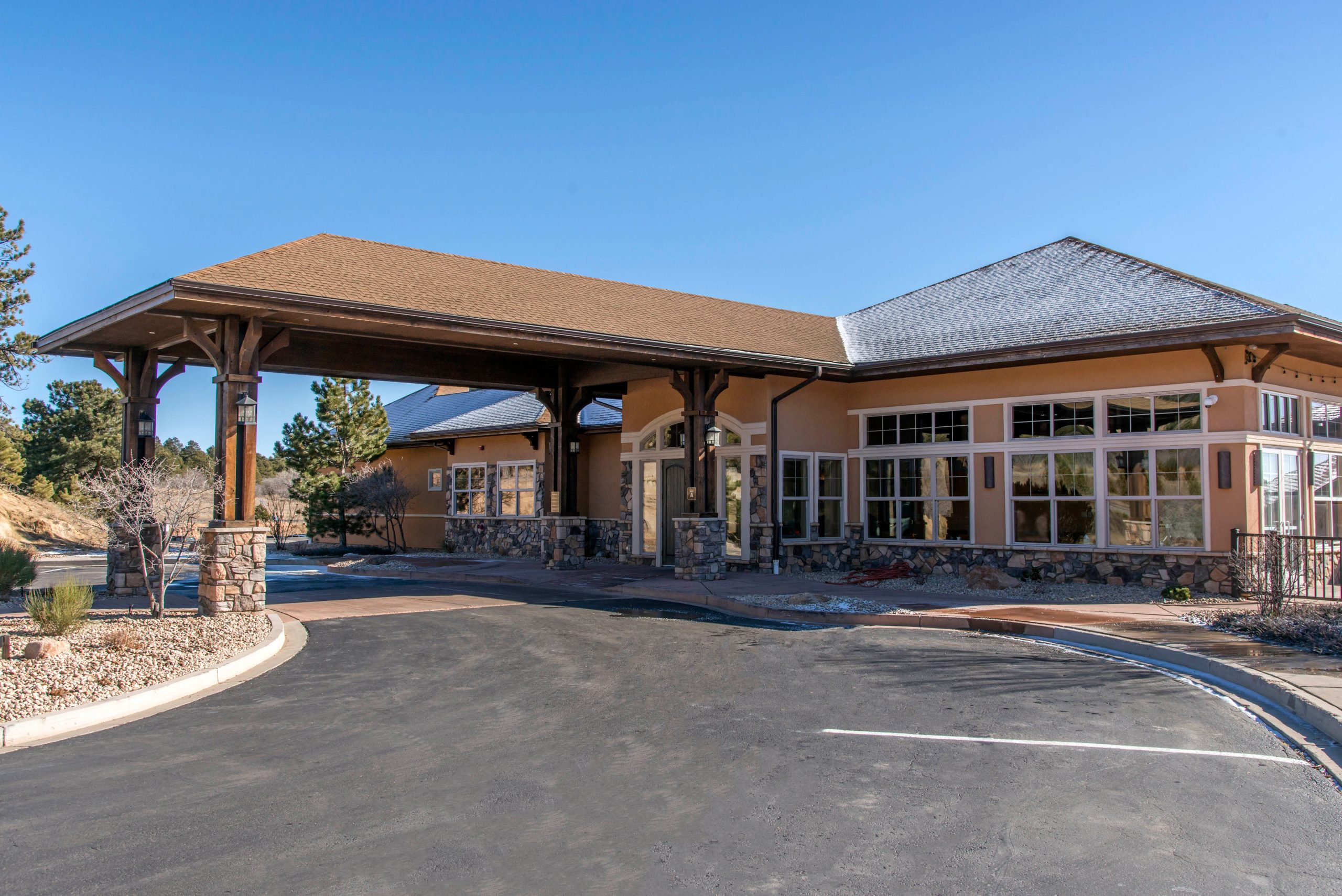
QUALITY CARE YOU DESERVE
Healing at The Recovery Village at Palmer Lake
At our facility, we understand that addiction is a chronic and treatable disease, not a moral failing. Our patient-first approach provides the tools, therapeutic guidance, and medical support required to regain control of your life.

HELPFUL RESOURCES FOR PROSPECTIVE PATIENTS

Insurance
Instantly check to see if we are in-network with your insurance by filling out our confidential insurance verification form.

Admissions
Our admissions team is available 24/7 to help you begin your recovery journey. Learn more about our admissions process.

Our Facility
Our facility offers everything you need to heal body and mind during recovery — all in a peaceful atmosphere.
VIDEO
Choosing the Best Rehab for You
In a survey conducted by the U.S. Department of Health looking at 16,000 substance abuse treatment centers, The Recovery Village facilities ranked in the top 1% for comprehensive addiction treatment. Learn why.
TREATMENT PROGRAMS
Our Addiction Treatment Center in Colorado
Embrace a substance-free future with the aid of our evidence-based programs. We are committed to providing holistic support for your mental, physical, and emotional well-being throughout your entire treatment plan.

Medical Detox
Managing withdrawal is crucial, and it can be risky without proper care. Our round-the-clock medical team is dedicated to treating withdrawal symptoms promptly, prioritizing your safety and comfort.

Inpatient Rehab
Living onsite and participating in intensive addiction treatment can center your attention on recovery and teach you the crucial skills to make recovery last.

Outpatient Rehab
Patients attend outpatient appointments online or at our Denver office so they can keep working, attending school or maintaining their homes.

Dual Diagnosis
Simultaneously treating your substance use and mental health symptoms can help you manage life in recovery better, making you less likely to relapse.

Medication-Assisted Treatment
Our physicians provide medications that can ease withdrawal symptoms, suppress cravings or disincentivize certain substance use.

Aftercare Planning
Recovery doesn’t end upon discharge. We provide support, training, and core skills to make your transition back into the real world as best as possible.

Get Free, Confidential Help From A Recovery Advocate
Our Recovery Advocates are available 24/7 to answer questions and discuss the best treatment path for you. All calls are 100% free and confidential.

Our Drug Addiction & Alcoholism Treatment Programs
Treatment Programs
- Medical Detox
- Inpatient/Residential Rehab
- PHP/Partial Hospitalization Program
- IOP/Intensive Outpatient Program
- Dual Diagnosis for Co-occurring Disorders
- Medication-assisted Treatment (MAT)
- Aftercare
- Family Therapy
Specialized Services
- Addiction Focused Healthcare
- Case Management
- Chef-led Nutrition Program
Therapies & Peer Support
- One-on-One Counseling
- Group Therapy
- Cognitive-behavioral Therapy (CBT)
- Dialectical Behavior Therapy (DBT)
- Motivational Interviewing (MI)
- EMDR Therapy
- 12-Step Groups
- SMART Recovery After-Hours
Amenities & Activities
- Fully equipped gym
- Heated swimming pool
- Basketball court
- Sand volleyball
- Pickleball court
- Frisbee Golf Course
- Tetherball & Horseshoes
- Labyrinth
- Ping pong & Pool Tables
- Yoga
- Art & Music Activities
- Amazing mountain views
Aftercare
- Relapse prevention plan
- Online teletherapy through Denver sister facility
- Medical & therapeutic referrals
- Sober living recommendations
- Local support group recommendations
- Alumni network

TESTIMONIALS
Your Recovery Is Our Mission
If you struggle with addiction, you’re not alone. Read our reviews and explore why The Recovery Village Palmer Lake may be the right place for your addiction recovery.
Ready to start your recovery?
We’re available to answer any questions, confirm your insurance benefits and schedule individualized treatment that works for you.


 Insurance
Insurance About Us
About Us Our Facility
Our Facility Admissions
Admissions Programs
Programs Medical Detox
Medical Detox Inpatient Rehab
Inpatient Rehab Aftercare & Recovery
Aftercare & Recovery